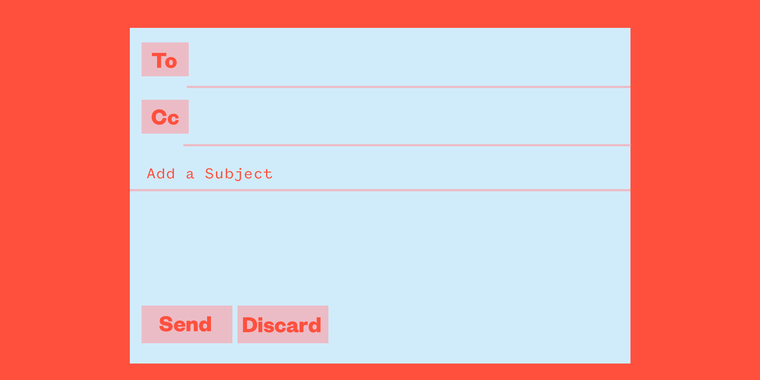With a record 4.5 million Americans who quit their jobs in November 2021 alone, the need to know how to write a resignation letter is bigger than ever.
Regardless of your next career move, it can be hard to see a light at the end of the tunnel when you have a wave of dread about sending your two weeks' notice — and even scarier, having a conversation about your exit with your boss. But your resignation letter sets the tone for how your exit process will go, so it's important to get it right.
Before you start sweating, read our tips below for help on how to write a resignation letter, and follow the sample resignation letter template provided to make "I quit" as easy as it can be.
Should I tell my boss I'm quitting before I send my resignation letter?
Psychotherapist and coach Karina Aybar-Jacobs, LMSW, CPC, says it's a good idea to have an in-person (or over the phone if you're working from home) conversation with your boss if you feel comfortable. This will signal to your boss that you have respect for the position and the company, and hopefully set a positive tone for your exit process.
She also strongly advises going to your boss before you let anyone else know you're leaving the company. "You don't want your boss to hear the news through the grapevine."
Of course, this might not feel like a feasible option if you're leaving your current job because of a toxic boss. If this is the case, Aybar-Jacobs recommends going right to sending your letter via email, or whatever is necessary per the company's policy.
What should I include in my resignation letter?
Aybar-Jacobs recommends keeping your letter as concise as possible. "I believe it's important to keep it simple and straight to the point," she says.
Your resignation letter should include:
- Housekeeping factors, like the date you're leaving.
- A section in which you express gratitude for the opportunity the company gave you during your time of employment. In this section, Aybar-Jacobs recommends thanking your boss and the company for the opportunity and maybe highlighting some favorite learning moments or experiences if applicable. "I think it's so important to get in tune with your emotional intelligence," says Aybar-Jacobs, "Before you hand in the letter, get in tune with the fact that you did get an opportunity to work at that job, and whether it was a negative or positive experience, I'm sure you learned something from it."
- A brief explanation for why you're leaving. If you feel comfortable sharing details about your next career move, it couldn’t hurt, but it's not necessary to give explicit details about your next steps. "You could say 'I was offered an opportunity and it's in alignment with my long-term goals,' something like that," she says.
- Mention that you’re willing to wrap up any work or projects and do whatever you can to ensure your exit happens as smoothly as possible for your teammates as a courtesy to your team and the company.
What shouldn't I include in my resignation letter?
Aybar-Jacobs strongly encourages not showing any signs of animosity toward your boss or company in a resignation letter, even if that doesn't necessarily reflect your feelings. "Don't express your grievances... hopefully, if they are a healthy and emotionally intelligent work environment, they will probably inquire about having an exit interview."
If your company does not offer an exit interview, she recommends keeping your exit as neutral as possible, since volunteering your grievances could be "to your own detriment," according to Aybar-Jacobs.
"The way that you exit your job says a lot about your character," she says. "It feels good as a professional to exit on good terms... as marginalized as you may be feeling, they don't deserve you acting out of character and potentially harming your professional career."
"The way that you exit your job says a lot about your character," she says.
If your boss retaliates upon receiving the news of your leaving, Aybar-Jacobs stresses the importance of keeping your composure. "How they react is on them. How you react, that's on you."
If backlash is severe (a boss threatening to harm your career, a bad reference), Aybar-Jacobs recommends reaching out to an HR or Union representative if you have one available — but never resort to the inappropriate behavior your boss is displaying to you.
Resignation letter example
Sometimes, it helps to have a strict guide for what to say, especially if your stress levels are high and you feel like you can't focus.
Here's a sample resignation letter template you can use:
Dear [NAME OF BOSS and/or HR REPRESENTATIVE],
Please accept this letter as my notice of leaving [COMPANY].
My final day of work will be [DATE]. I am very grateful for the opportunity I had to work here, but I have found an opportunity that aligns more with my career goals. [OPPORTUNITY TO INCLUDE BRIEF DETAILS ABOUT YOUR NEXT JOB (IF WILLING TO DISCLOSE), AND SHORT EXAMPLES OF LEARNING EXPERIENCES/ GRATITUDE HERE.]
Before my exit, I am happy to help with finishing any projects and do whatever is necessary to ensure a smooth exit process. Thank you again for the opportunity to work here, and let me know what I can do to help before my final day.
Best,
[NAME]

